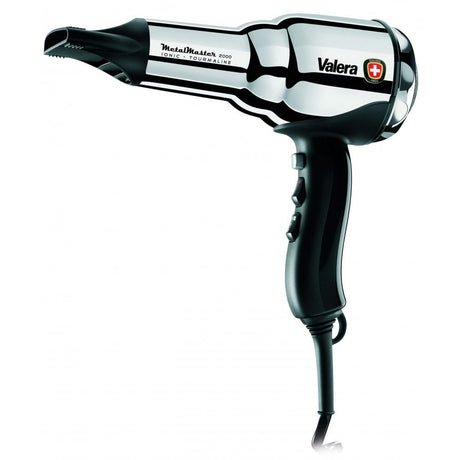The moment you start looking at washroom updates, especially with regards to hand dryers, you will undoubtedly come across paper towel manufacturers shouting about how hand dryers are not effective at keeping hands clean, or hand dryer companies talking about bacteria being transferred via the physical contact of paper towels. So, in this article we wanted to try and take as balanced a view as possible in the biggest debate in commercial washrooms, and look at the real difference between using hand dryers and paper towels.
Hygiene
There has been a lot of talk anecdotally about how paper towels are more hygienic than hand dryers, but the overall conclusion from a range of studies paints a more balanced picture. And while there are specific studies which strongly state that paper towels are cleaner than hand dryers (often accompanied with sensationalist headlines), these studies are often conducted by paper towel companies in settings that don’t replicate the real world, and so the inherent bias in them means they can’t be trusted to be objective.
What we find telling, is that both the World Health Organization (WHO) and Centers for Disease Control and Prevention (CDC) acknowledge that either hand dryers or paper towels are effective, so long as the primary goal of properly washing and then thoroughly drying your hands is achieved.
What is very clear, is that wet hands spread far more germs than dry hands, regardless of the drying method. Some research shows that high-speed dryers can disperse small droplets into the air, but modern dryers equipped with HEPA filters trap 99.97% of bacteria and particles, significantly improving air cleanliness.
It’s worth noting that most contamination risks in public restrooms stem from generally inadequate handwashing rather than the drying method itself. Ensuring thorough washing and drying is ultimately what matters most when it comes to hygiene.
So, if hand dryers and paper towels are equal in their hygiene levels, where do they differ?
Environmental Impact
Environmental considerations introduce a different kind of debate. Hand dryers do use electricity which instinctively make us think that they are worse for the environment. However, when compared against paper towels, the environmental cost becomes more complex.
Paper towels:
- Require energy and water for manufacturing.
- Cannot usually be recycled due to contamination.
- Create substantial landfill waste over time.
Hand dryers:
- Draw electricity during operation.
- Have a carbon footprint associated with manufacturing.
- Do not use consumables so they do not produce ongoing waste.
When measured end-to-end, studies find that modern energy-efficient hand dryers have a lower lifetime environmental impact compared to paper towel systems, especially when factoring in waste management and continuous paper production emissions.
Newer hand dryers are increasingly optimized for lower energy consumption per use, narrowing their carbon footprint even further compared to older models.
Cost
Cost comparisons show an upfront disadvantage for hand dryers: they require a larger initial investment for purchase and installation compared to simply stocking a dispenser with paper towels. However, over their lifetime, hand dryers dramatically outperform paper towels in terms of cost-efficiency.
When looking at cost per usage, using one of our most popular hand dryers: the Dyson Airblade V HU02, this model gets 1500 dries per £1 spent on electricity. Compared with 143 dries using paper towels per £1 spent. Very, very quickly the hand dryer starts to pay for itself.
With hand dryers:
- There is no ongoing purchase of consumables.
- They don’t need for constant maintenance like refilling or waste bin emptying.
- Lower long-term maintenance costs, especially for newer, durable models.
Estimates suggest that businesses can save thousands over several years by choosing hand dryers over a constant supply of paper towels—making them not just the greener option but also the more economical one in the long run.
The question of whether hand dryers are hygienic is often oversimplified and can be affected by personal preference. Both hand dryers and paper towels are effective—the true focus should be on thorough handwashing and drying.
So when looking at which is best for your business, the question needs to be around the other aspects of cost and environmental impact. Which, we feel hand dryers actually far out perform paper towels.
Choosing between the two ultimately depends on your priorities: immediate installation costs versus long-term savings, and individual preferences around perceived hygiene and environmental responsibility. Either way, properly dried hands remain the most critical factor for maintaining good hygiene.
Hand dryer hygiene FAQS
Do hand dryers spread germs?
Modern hand dryers, especially those with HEPA filters, are designed to minimize the spread of germs by filtering out 99.97% of bacteria and particles. Proper handwashing and drying are the key factors in maintaining hygiene, regardless of the drying method.
Are hand dryers more eco-friendly than paper towels?
Overall, hand dryers tend to be more eco-friendly. Although they use electricity, they eliminate the need for paper production, transportation, and landfill waste, giving them a lower environmental impact over their lifetime.
Which is cheaper: hand dryers or paper towels?
While hand dryers require a higher initial investment, they become far more economical over time. Businesses typically save significantly on operational costs by eliminating the need for continuous paper towel supplies and waste disposal.





